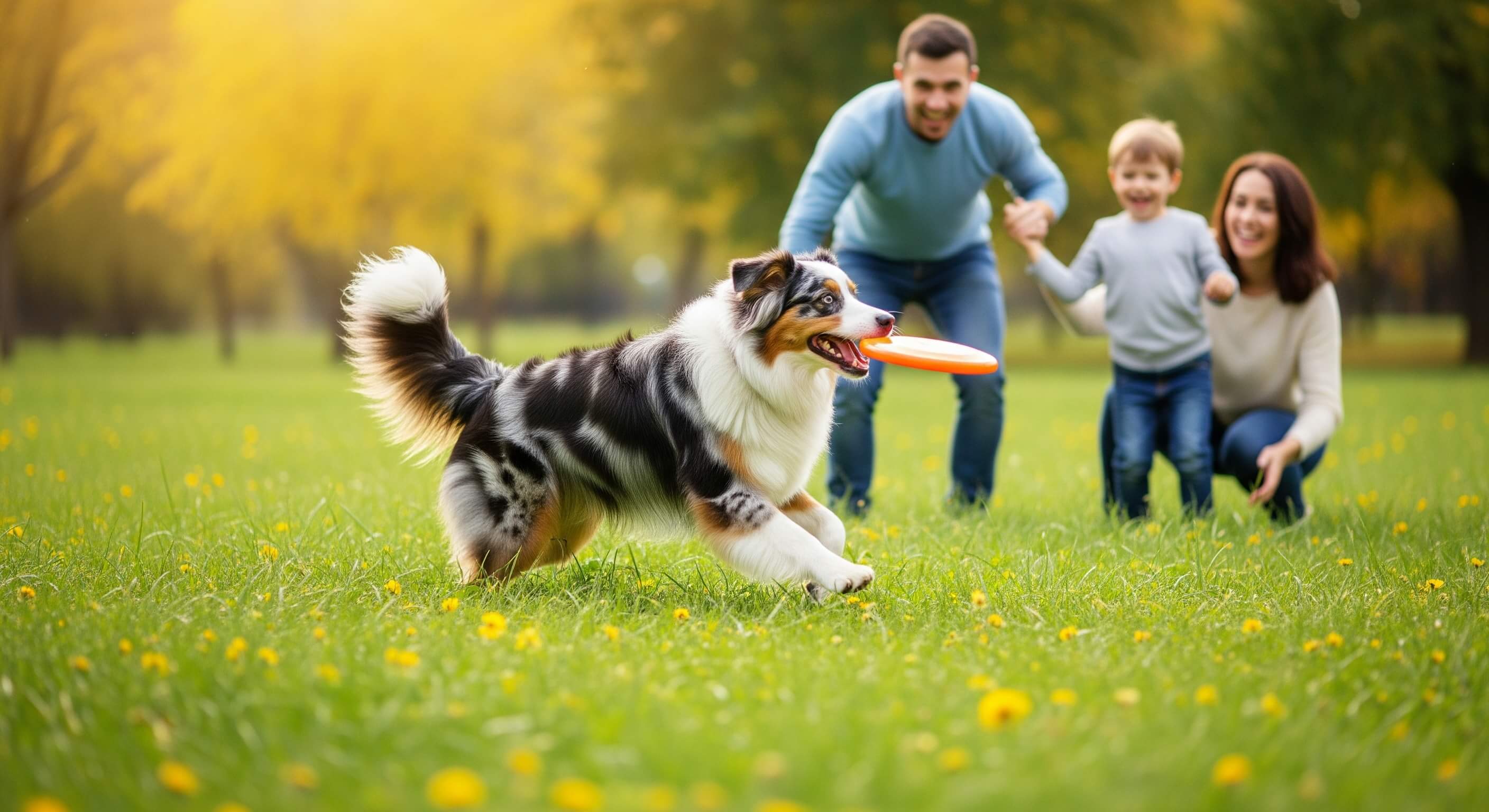The Australian Shepherd—often called the "Aussie"—is a smart, energetic, and family-friendly dog beloved by active pet parents. Despite its name, this breed originated in the U.S. and was developed to herd livestock across ranches. If you're looking for a loyal, agile companion who thrives with a job to do, you're in for a treat!
Temperament and Personality Traits
Aussies are known for their devoted temperament and keen intelligence. They're often described as velcro dogs because they love being close to their humans. Their personality traits include alertness, enthusiasm, and a playful streak that lasts well into adulthood. But beware—they’re not the breed for couch potatoes.
Training Difficulty and Socialization Needs
Training an Aussie can be both a joy and a challenge. Thanks to their brains and eagerness to please, they excel in obedience, agility, and even dog sports. However, their high energy and occasional stubborn streaks mean training difficulty can spike if consistency and mental stimulation are lacking.
Early socialization needs are key. Expose them to other dogs, kids, people, and various environments from puppyhood to ensure they grow into balanced, confident adults.
Exercise Requirements and Mental Stimulation
This breed is the poster pup for high exercise requirements. Daily runs, hikes, fetch, agility, or long play sessions are essential. A bored Aussie may become destructive or develop behavioral issues. I once fostered an Aussie named Scout who herded my vacuum cleaner when understimulated—it was hilarious and a little chaotic!
- Minimum 1–2 hours of exercise daily
- Interactive toys and training sessions
- Dog sports or herding tasks are ideal
Grooming Needs and Shedding Level
Aussies sport a medium-length double coat that requires moderate upkeep. Weekly brushing helps manage their shedding level, especially during seasonal coat blows. Their grooming needs include:
- Brushing 2–3 times a week
- Bathing every 6–8 weeks
- Regular nail trims and ear checks
Health Issues and Lifespan
Generally healthy, Aussies still face some breed-specific health issues. Regular vet visits and early screening help ensure a long, active life.
- Common issues: hip dysplasia, epilepsy, progressive retinal atrophy (PRA)
- Lifespan: 12–15 years
Diet Requirements
Aussies burn calories like wildfire. Their diet requirements should meet their energy output. Choose a high-protein, well-balanced diet with joint and coat support.
- 2–3 cups of quality kibble daily (split into 2 meals)
- Consider fish oils or glucosamine supplements
- Fresh water and limited treats
Living Environment and Family Compatibility
Aussies thrive in homes with space to roam. While not ideal for apartment living, it can work with enough daily exercise. They're incredibly family-friendly and often good with children—especially when raised together. Their protective nature and keen senses also make them excellent watchdogs.
Barking Tendency
These dogs love to alert you. Their barking tendency ranges from moderate to high, especially when they're excited or unsure. Training can help manage it, but expect some chatter.
Summary
If you’re an active family or individual seeking a fun-loving, whip-smart, loyal companion, the Australian Shepherd might just be your perfect match. Just be prepared to give them the time, training, and activity they crave.
Product Picks
- Outward Hound Puzzle Toys – for mental stimulation
- Blue Buffalo Wilderness High-Protein Food – ideal for active breeds
- Furminator Undercoat Tool – to manage shedding
Frequently Asked Questions (FAQs)
1. What is the temperament of an Australian Shepherd?
2. Are Australian Shepherds good with children?
3. How much exercise does an Australian Shepherd need?
4. Can Australian Shepherds live in apartments?
5. Do Australian Shepherds shed a lot?
6. Are Australian Shepherds easy to train?

About SniffnTail
SniffnTail is your go-to destination for everything pets. From helpful advice, tips, and insights to thoughtfully selected products and resources, we’re here to support pet owners at every stage of their journey. Whether you're caring for a playful pup, a wise old cat, or anything in between, SniffnTail offers tools and knowledge to make pet parenting easier and more joyful.
Related Articles
 Dog Breeds • 5 mins Read
Dog Breeds • 5 mins ReadDog Breeds Banned in India: A Look at Safety, Law, and Responsibility
India, as with other nations, has struggled with how to balance human safety and animal rights, specifically regarding dog ownership. In the last ten years, the increased number of pet attacks—most involving strong or violent breeds—has raised concerns among citizens, animal rights activists, and lawmakers. In reaction, some state governments and local governments have taken steps to limit or prohibit the ownership of certain dog breeds deemed dangerous or unsuitable for home life. Although public safety and the avoidance of animal cruelty are among the reasons for these bans, the issue is contentious, and it raises issues regarding responsible pet ownership and the morality of breed-specific legislation.
 Dog Breeds • 7 mins
Dog Breeds • 7 minsYorkshire Terrier Dog Breed Guide: Personality, Care & Lifestyle Tips
Explore the personality traits, training difficulty, grooming needs, and lifestyle compatibility of Yorkshire Terriers. Learn all about their temperament, exercise requirements, socialization needs, and more.
 Dog Breeds • 7 minutes
Dog Breeds • 7 minutesCavalier King Charles Spaniel Guide: Personality, Care & Living Tips
Discover the charming Cavalier King Charles Spaniel—learn about their temperament, grooming needs, training difficulty, and why they're ideal for family-friendly, apartment living.

